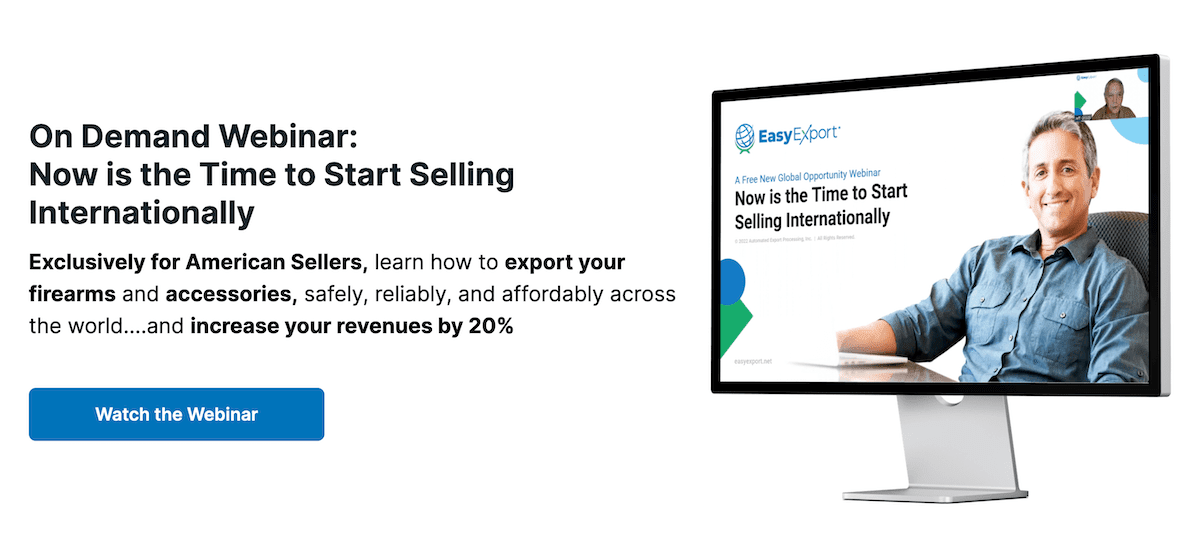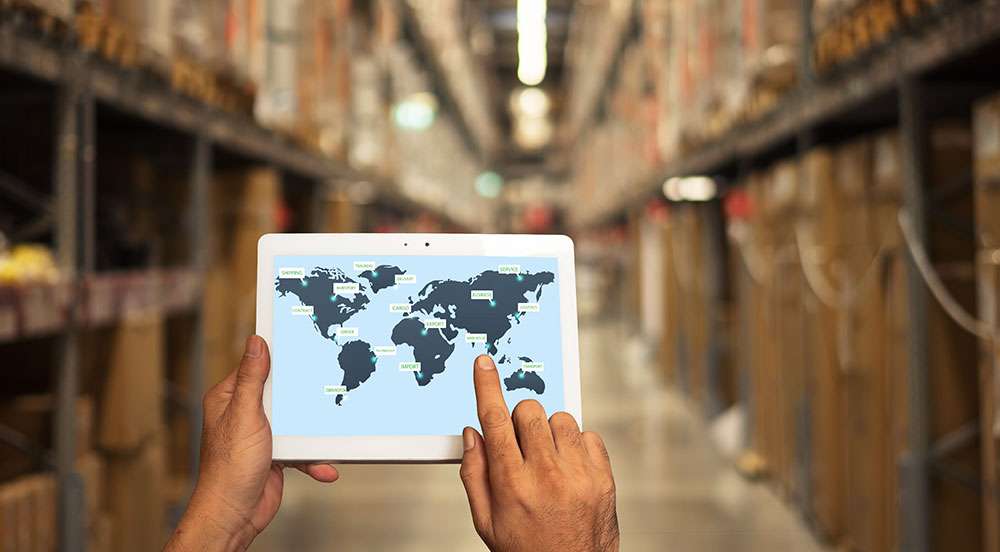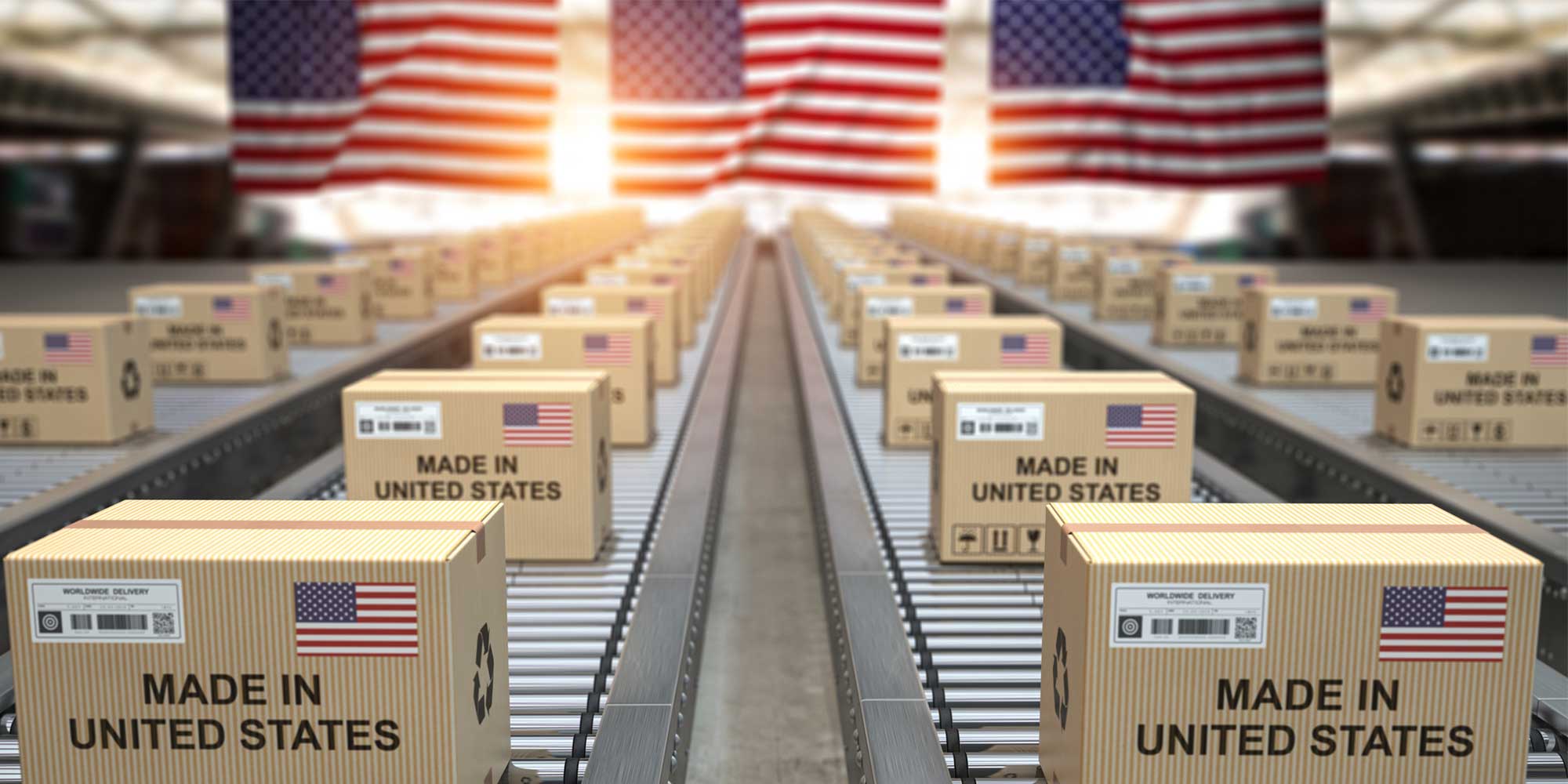New regulations for exporting semi-automatic and non-automatic firearms and almost all parts, accessories and optics take effect on 9 March 2020.
In this post, we look at 10 ways the new firearm export regulations will help you ship these items to customers outside the United States.
- No license required for shipments of firearm parts up to $500.
It will now be legal to ship up to $500 of firearm parts (other than frames, receivers and complete breech mechanisms) to almost any country in the world without a license. The previous limit was $100 for exports to all countries other than Canada. There are some significant details to be aware of when you use this new “license exception,” such as an annual limit of $6,000 per customer, the need to classify the products being shipped correctly, and a requirement that AES submissions be made. For exporters who are careful, however, this is a valuable change. - No license required, without a dollar limit, for some items.
You will now be permitted to ship certain items to almost all countries without a license, regardless of value. These are: stocks, grips, scope mounts, accessory rails, iron sights, sling swivels, butt plates, recoil pads, and bayonets. These items are not EAR99, however. They are classified as ECCN 0A501.y and an AES submission is required. (Note: If you export products in this group that previously have been classified as EAR99 by a Commodity Jurisdiction determination or a CCATS, the specific items covered by the CJ or CCATS continue to be EAR99). - Certain minor parts are now deemed to be EAR99.
Under the ITAR, even the most minor firearm parts were controlled under U.S.M.L. Category I(h) and required an export license prior to export. Now, the following items are classified as EAR99 even if they have been specialized designed for use in a firearm or controlled firearm accessory: fasteners (e.g., screws, nuts, nut plates, studs, inserts, clips, rivets, pins (not firing pins), washers, spacers, insulators, grommets, bushings, springs, wire and solder. As EAR99 items, they can be shipped without a license and without an AES filing (Note: if the value of EAR99 items with the same Schedule B number exceeds $2,500, an AES filing is required for those items). - The fee for most export licenses has decreased from $250 to $0.
Under the ITAR, larger exporters’ annual registration fee with the State Department is calculated on the basis of $250 for every license submitted. There is no license fee under the new Commerce Department regulations. The only firearm exports that now require ITAR licenses are automatic and other truly military weapons, silencers, and parts and accessories for automatic and military weapons and their components. (Note: Be careful how you classify semi-automatic ARs containing parts that were specially designed for automatic weapons. Those parts may remain subject to the ITAR and require ITAR licenses. Consider seeking a CJ.)
- There is no annual registration fee with the Commerce Department.
The minimum annual State Department registration fee under the ITAR is $2,250. There is no annual registration fee under the new Commerce Department regulations. Many exporters in the industry will not make or sell items that continue to be controlled by the ITAR and therefore will no longer be required to pay an annual registration fee. - Getting set up to submit export licenses is much easier now.
New exporters can set themselves up in a day to submit Commerce Department licenses. Under the ITAR, setup has taken weeks. Although the State Department process has become somewhat more streamlined than in the past, it will continue to be more cumbersome and time-consuming than setup under the BIS regulations. - Commerce Department export licenses can be prepared quickly.
Under the ITAR, exporters are required to submit purchase orders, import permits, end-user certificates and, sometimes, DSP-83s, with a DSP-5 license. None of these documents are submitted with SNAP-R (BIS) licenses. - Commerce Department export licenses can cover future purchase orders.
ITAR export licenses authorize shipment of a single purchase order, which is attached to the DSP-5 when it is submitted. Commerce Department export licenses authorize exports of specified quantities of items at specified prices, without regard to any purchase order. Therefore, they do not need to be connected to a single purchase order. - Commerce Department export license can be obtained before orders are received.
Commerce Department licenses can be obtained before you have received any purchase order at all. Consider this: Your compliance team applies for a license while sales is still negotiating with the customer. If the product is ready to go, ship as soon as the purchase order arrives! - Commerce Department licenses can cover product groups.
If you are preparing a Commerce Department license for products that haven’t been ordered yet and you don’t know which specific SKUs will be ordered, that’s okay. You don’t need to know. Commerce Department licenses can pre-authorize export of product groups. You can assign the authorizations to specific SKUs when purchase orders arrive
To learn how EasyExport can help you sell your products online to purchasers in other countries and grow your revenues by as much as 20%, please click below.






